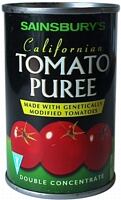The bill - which must now go to the state senate and comes hot on the heels of a ‘yes’ vote for GMO labeling in Connecticut - also stipulates that foods with GMO labels cannot be marketed as ‘natural’. But it does not contain private enforcement provisions and will only take effect when five contiguous states pass similar laws.
Just Label It: ‘Momentous vote rides on the wave of the growing movement for GE labeling’
The “momentous” vote was immediately welcomed by the Just Label It campaign manager Katrina Staves, who said it “rides on the wave of the growing movement for GE labeling in New England and across the country”.
She added: "This symbolizes the common sentiment by consumers everywhere for greater transparency in our food."
But those questioning the value of GM labels said slapping the equivalent of ‘may contain GMOs’ on 80% of packaged foods would not represent a very meaningful victory for consumers.
Speaking with FoodNavigator-USA about whether consumers have a right to know if foods are made with GM crops, molecular geneticist Dr Alan McHughen - who works at the botany and plant sciences dept at the University of California, Riverside - said: “How would that help consumers?”
All this will do is drive up the cost of all foods
Being open and honest with the public about the pros and cons of agricultural biotechnology is one thing, he said. But making it a legal requirement to detail the production methods used to make foods - even if they do not affect their safety or nutritional content - is quite another, he said.
Meanwhile, many products made with genetically engineered crops contain no detectable GM material or protein at all in the final product, he said.

“Once the door is open to mandatory process-based labels, there's no end to what consumers' curiosity will demand: Mandatory labels on foods produced in a union processing facility? Food grown on farms owned by women?
“All this will do is drive up the cost of all foods due to the liability issues that come with mislabeling, even from incidental mistakes, while diluting the positive value of our current, safety-based labels.”
UK consumers have less choice in the market, and pay substantially higher food process

As to what GMO labeling will mean for the food industry, he said: ”I can see all of the options. The easiest route would be to have a generic ‘May contain GM ingredients’ on everything. But how would that help consumers?
“A definite ‘Does contain GM ingredients’ is also useless without identifying which ingredients are GM, and the nature of the change. For example, some consumers may wish to avoid GM vegetables if they carry animal genes and protein, but don't care if the veggies don't have any DNA or protein at all.”
Meanwhile, “retailers are concerned about GM food labels used as a beacon for activists picketing the stores”, he said.
“Remember the GM tomato paste on sale in the UK in 1999? Activists picketed Sainsbury's and other retailers, warning consumers that the store was poisoning them, until the retailers removed the labeled products from the shelves.
“The end result was what the activists wanted all along: No GM foods in the market. As a result, UK consumers have less choice in the market, and pay substantially higher food process.
“Even US activists will admit in private that's their true goal, with labeling as one step to meeting the objective of banning the GM foods altogether, although in public they usually fly the flag of 'consumer choice.”
GMO labeling: The latest
More than 20 other states are considering similar legislation this year, including Washington and Vermont. Last week, Connecticut became the first state to pass a GE labeling bill, which will go into effect when four states, including one neighboring one, pass similar legislation.
A federal GE labeling bill has also been introduced by Senator Barbara Boxer (D-CA) and Representative Peter DeFazio (D-OR).
